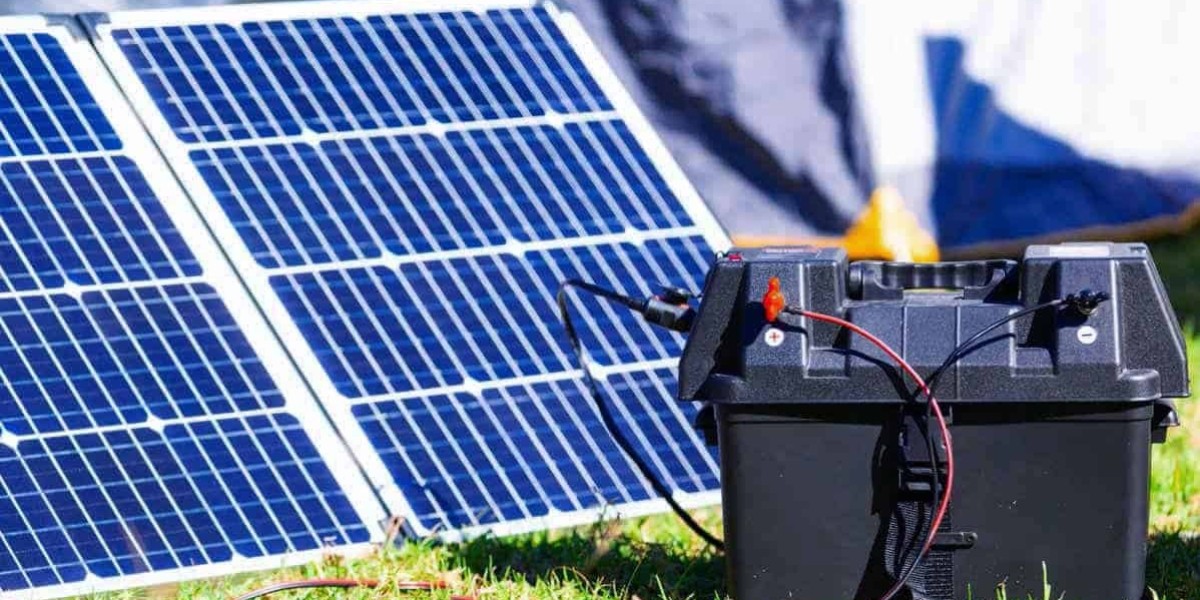As the world increasingly shifts towards renewable energy, solar power has emerged as one of the most popular and sustainable sources of electricity. However, one of the challenges of solar energy is its intermittency – the sun doesn't always shine when energy is needed. To address this issue and maximize the benefits of solar power, solar batteries have become an essential component of solar energy systems. This article explores the role of solar batteries, their benefits, and why they are becoming an important part of energy storage solutions.
What is a Solar Battery?
A solar battery is a device that stores excess energy generated by solar panels during the day for later use. During the day, solar panels capture sunlight and convert it into electricity. When the sun is shining, the system generates more electricity than is needed to power the home or business. Solar batteries store this excess energy, which can be used during periods when the solar panels are not producing enough electricity, such as at night or on cloudy days.
Solar batteries are typically made using lithium-ion technology, which is known for its high energy density, long lifespan, and efficiency. Some systems also use other technologies, such as lead-acid or saltwater, depending on the application and budget.
Benefits of Solar Batteries
Energy Independence
One of the primary benefits of solar batteries is the ability to achieve energy independence. By storing excess energy generated during the day, homeowners and businesses can rely less on the grid and reduce their dependence on utility providers. This is especially important in areas where power outages are common or where electricity prices are high.
With a solar battery, you can use your own stored energy when the sun isn’t shining, reducing the need to purchase electricity from the grid. This independence from external power sources can provide peace of mind, knowing that you have a reliable, self-sustaining energy supply.
Cost Savings
By reducing reliance on the grid, solar batteries can help significantly lower electricity bills. During the day, when the solar system is generating excess energy, that energy is stored in the battery for later use. This reduces the need to buy electricity during peak hours when utility rates are often higher. Over time, the savings on energy bills can help offset the initial cost of purchasing and installing the solar battery system.
Additionally, many utility companies offer time-of-use billing, where electricity costs vary based on the time of day. Solar batteries enable users to take advantage of low-cost electricity during off-peak hours and avoid the higher rates during peak times.
Environmental Benefits
Solar batteries, when paired with solar panels, create a sustainable energy solution that significantly reduces the carbon footprint of a home or business. By storing and using renewable energy, solar battery systems contribute to the reduction of greenhouse gas emissions that would otherwise be generated by fossil fuels. This makes solar batteries a key component of any effort to combat climate change and promote clean energy.
Backup Power During Outages
In areas where power outages are frequent, solar batteries can provide a reliable source of backup power. When the grid goes down, the solar battery can automatically provide electricity to keep essential devices and systems running, such as lights, refrigerators, and medical equipment. This added reliability makes solar batteries particularly valuable in areas that experience frequent or extended power outages.
Increased Energy Efficiency
Solar batteries help increase the overall energy efficiency of a solar system. Without a battery, any excess energy produced by the solar panels that isn’t used immediately is sent back to the grid. With a battery, this excess energy is stored for later use, ensuring that all the energy generated by the solar system is utilized efficiently. This makes the system more effective and reduces waste, making the most of the available solar energy.
Choosing the Right Solar Battery
When selecting a solar battery, there are several factors to consider:
Storage Capacity: The size of the battery should be sufficient to meet your energy needs during periods without sunlight. The more energy you want to store, the larger the battery capacity you will need.
Efficiency: The efficiency of the battery refers to how well it stores and releases energy. A higher efficiency means more of the energy generated by the solar panels is stored and used.
Lifespan: Solar batteries have a lifespan of 5 to 15 years, depending on the type and quality of the battery. Choosing a battery with a long lifespan ensures that you get the most value out of your investment.
Cost: The price of solar batteries can vary significantly based on their capacity, technology, and brand. It's essential to choose a battery that fits within your budget while meeting your energy storage needs.
Warranty: A good warranty is important for solar batteries, as it guarantees that the battery will be replaced or repaired if it malfunctions within a certain period.
The Future of Solar Batteries
The demand for solar batteries is expected to grow significantly as more people adopt solar energy systems and seek ways to store and manage their energy consumption. As technology improves, solar batteries are becoming more efficient, affordable, and longer-lasting. New innovations, such as solid-state batteries and other advanced technologies, promise to further enhance the performance and affordability of solar storage solutions.
In addition, government incentives and subsidies for renewable energy are helping make solar batteries more accessible to homeowners and businesses. These incentives can significantly reduce the upfront cost of purchasing and installing solar batteries, making them a more attractive option for those looking to invest in renewable energy.
Conclusion
Solar batteries play a crucial role in optimizing solar energy systems and making renewable energy more accessible, reliable, and efficient. By storing excess energy generated during the day for later use, solar batteries provide homeowners and businesses with greater energy independence, cost savings, and environmental benefits. As the world continues to move towards sustainable energy solutions, solar batteries will become an essential component of a greener, more resilient energy future. Investing in solar batteries is not only a smart choice for today but also a forward-thinking step toward a cleaner, more sustainable tomorrow.










